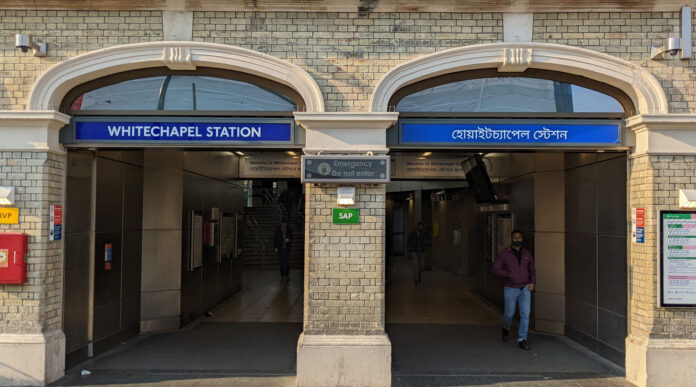Nearly three years after a Bengali-language signage was installed at London’s Whitechapel Station, Tesla CEO Elon Musk has backed a British MP’s call for station names in the city to be displayed exclusively in English.
Musk responded with a simple “Yes” to Great Yarmouth MP Rupert Lowe’s post on X (formerly Twitter) on Sunday, where Lowe criticized the dual-language signage at Whitechapel Station. “This is London – the station name should be in English, and English only,” the MP wrote, sharing a picture of the signage that features both English and Bengali text.
The Bengali signage was introduced in March 2022 as a tribute to the significant contributions of the Bangladeshi community in east London. The initiative was funded by the Tower Hamlets Council as part of broader improvements to the area’s transport infrastructure. The unveiling of the signage was attended by Tower Hamlets Mayor John Biggs and Bangladesh High Commissioner Saida Muna Tasneem.
Whitechapel, located in the borough of Tower Hamlets, is home to the UK’s largest Bangladeshi community. The installation of Bengali-language signs was widely celebrated by community members and cultural advocates. Even West Bengal Chief Minister Mamata Banerjee acknowledged the move, stating, “Proud to note that the London Tube Rail has accepted Bengali as a language of signage at Whitechapel Station, signifying the increasing global importance and strength of the 1,000-year-old language Bengali.” She further added that the decision was “a victory of our culture and heritage.”
The signage debate has now sparked discussions on linguistic representation in public spaces. While many support the recognition of minority communities through multilingual signage, others, including MP Rupert Lowe and Musk, argue that station names should remain solely in English.
As the debate gains traction online, it remains to be seen whether Transport for London (TfL) or Tower Hamlets Council will respond to the renewed controversy over the bilingual signage at Whitechapel Station.



